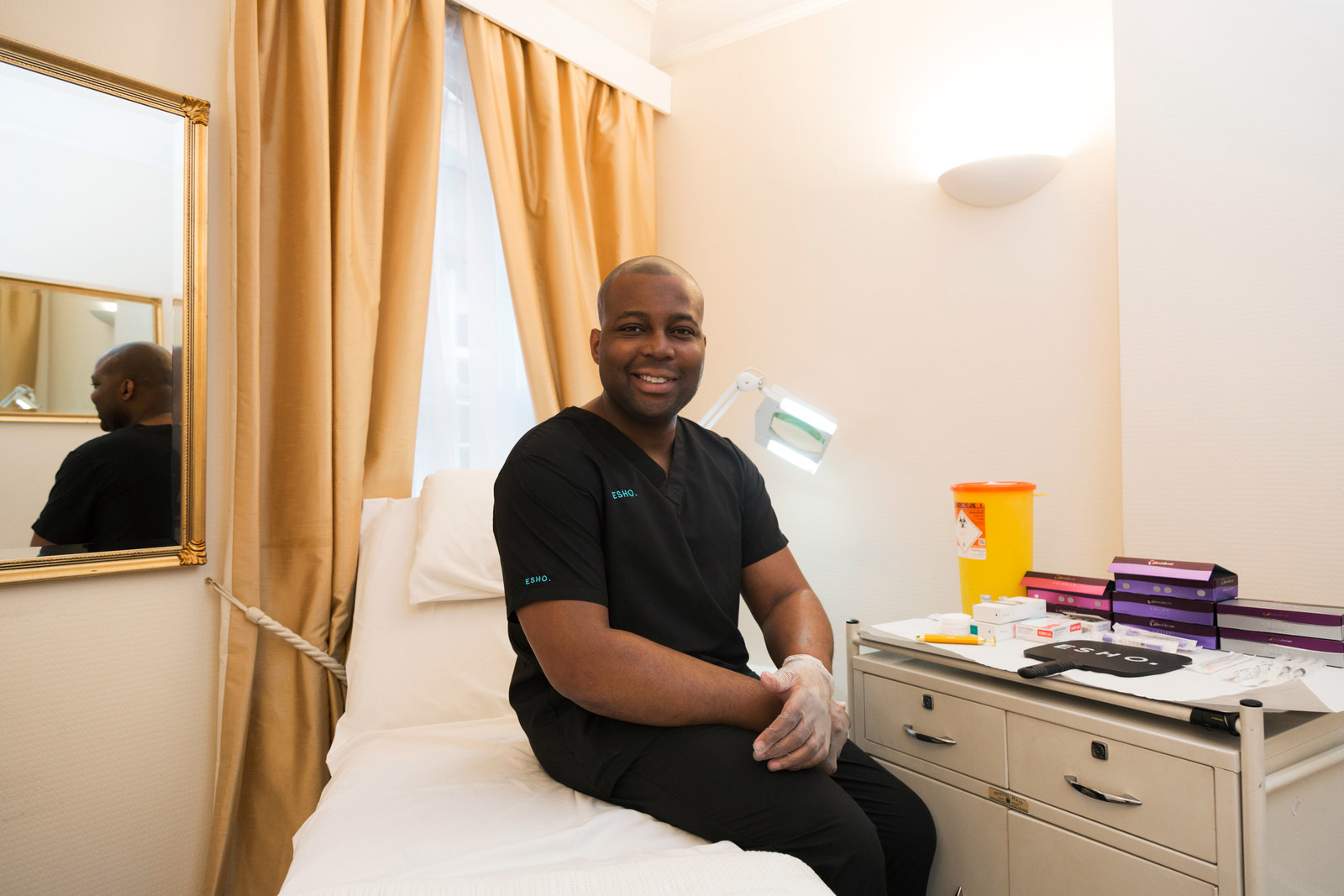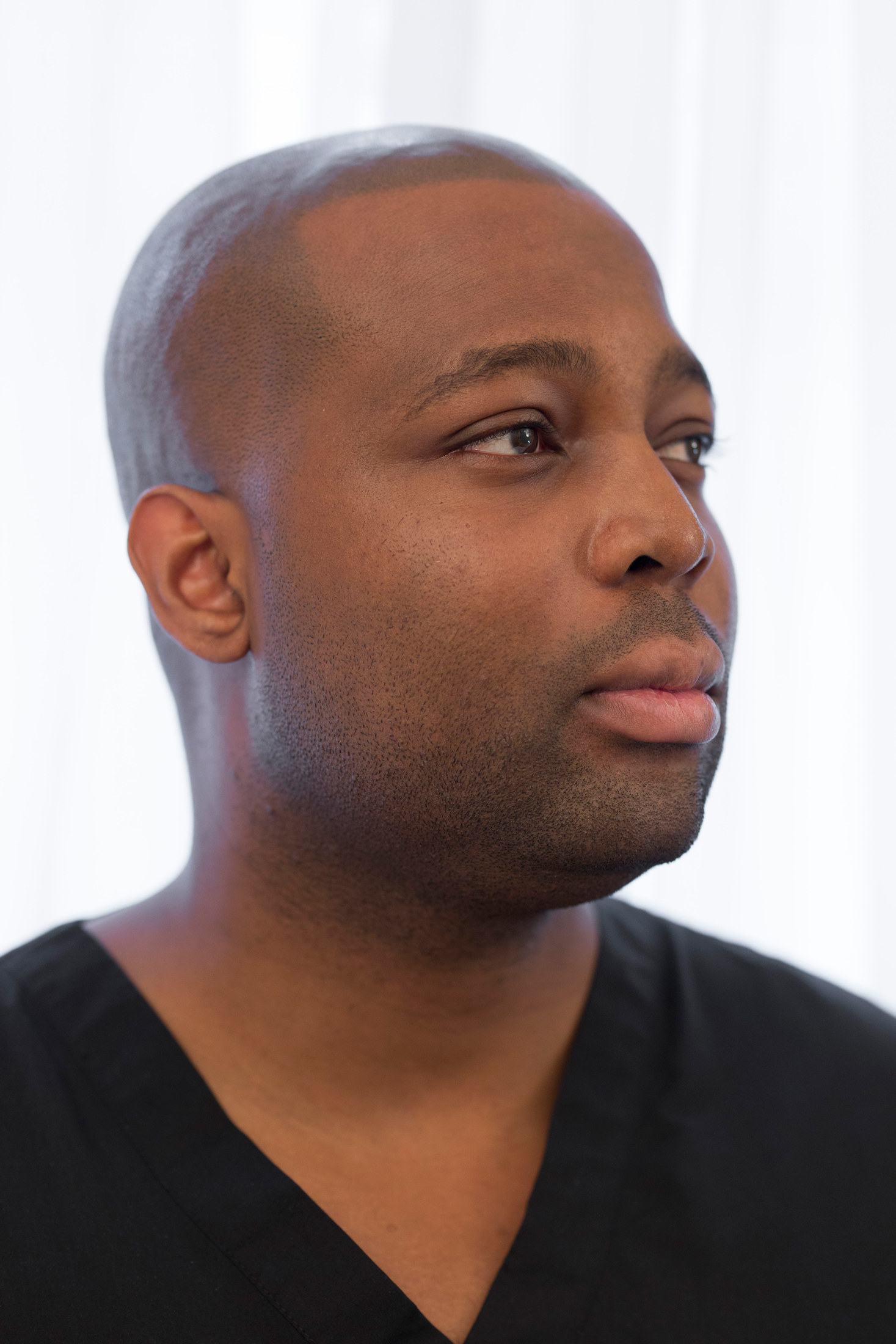One of Britain's leading cosmetic doctors has raised concerns about the growing number of young women coming to him to repair botched lip treatments.
Dr Tijion Esho, a 32-year-old who is also the doctor-in-residence for E4's Body Fixers, says a third of his customers on an average day are those desperate to fix lip fillers gone wrong, leading to complications like infection and cysts.
He is now urging the government to introduce legislation for tougher regulation to prevent under-18s from having the non-surgical procedure made popular by reality TV stars like Kylie Jenner and Charlotte Crosby.
Esho, who has been doing cosmetic treatments for more than seven years, told BuzzFeed News that over the years he has seen a rise in demand for lip fillers, an industry that is largely unregulated. In one day alone, he says, he sees up to 15 patients who want lip augmentation treatment.
But a third of those, he says, are young women have had the treatment performed by someone who is not a medical professional, which has then led to disastrous consequences.
"Now, a third of my list every day – so that's about five – are cases where people have had botched treatment or incorrect treatment," he said.
If a procedure goes wrong it can have a huge impact on a patient, Esho said. He said he has people with pus coming out of their lips, haematomas, and more commonly lip cysts. "The filler is placed so superficially in their lip you can actually see it as a cyst lying on top of the lip itself, which isn't pleasant for the person," he said.
It's not just physical implications; botched treatments also have a huge psychological impact on a person. "They can lose confidence, they're upset, and many times they're embarrassed," Esho said.
"They realised the mistakes that they've made and they often just want it fixed. For some it can be fixed, but unfortunately for some they can't," he added.
It is why Esho believes the government has a big part to play in ensuring people get safe treatments. "Medical professionals like myself all agree that these procedures should be done by medical professionals only," he said.
"We would like to see regulation that's law... If it's not law then it doesn't really affect anyone – there's no grave implications, especially if you don't have anyone to answer to."
Esho said the rise in botched lip treatments has become a problem because in the UK the procedure is not regulated. It means you don't need to be medically qualified to perform these procedures, and there is no legal age restriction.

While it's generally accepted that those having lip fillers should be over 18, not every practitioner will ask for ID, particularly those who aren't professionals.
"Someone as young as 14 or 16 could have these treatments done and there would be no legal ramifications," Esho said. "The government needs to step in and do a legal age limit the way it does with full surgery."
It is not the first time a medical professional has called for the government to take action. For several years doctors have described the lack of regulation of the procedure as a “crisis waiting to happen”.
A 2013 report by the Department of Health acknowledged the “explosive growth” in the market for dermal fillers, adding that this procedure is a particular cause for concern as anyone can set themselves up as a practitioner despite not having any training or medical experience.
Last month, Bambos Charalambous, the Labour MP for Enfield Southgate, raised the matter in parliament. In a written question, he asked whether there were plans to bring forward legislative proposals to ban people under the age of 18 from accessing non-surgical cosmetic procedures.
Responding, health minister Philip Dunne said: "The government is committed to improving the safety of cosmetic procedures through better training, robust qualifications for practitioners, and better information so that people can make informed decisions about their care. We are currently exploring options to support this commitment further."
Charalambous told BuzzFeed News: "The Government needs to commit to setting a legal minimum age for accessing cosmetic procedures. There is a worrying rise in young people augmenting their bodies because of social pressures."
He highlighted a report from the Nuffield Council on Bioethics, which pointed out that sunbeds are regulated with an age limit but invasive procedures are not.
"My fear is that the potential for long-lasting physical and psychological damage, caused by botched jobs, is not being taken seriously by this government," he added.

Esho has also seen a rise in counterfeit products available to buy online that are not fit for purpose. "It is quite scary," he said. "A lot of the times when I check [a patient's] history and I ask 'What was your previous treatment?', no one knows, and that shocks me that you won't know what you were treated with."
The price of a treatment is based on a number of factors, such as where you are in the UK and the experience of the practitioner. On average, for professional treatment, you can expect to pay between £250 and £500, which is why Esho says many turn to backstreet outfits.
"They go somewhere cheap and they haven't got the expertise, and in some cases they're not actually seeing medical professionals," he said. "It's strange – in this country you don't actually need to be medically qualified to perform these procedures, which is quite scary."
Esho acknowledged that TV and celebrities influence the sort of treatments people ask for, but that there are other cultural influences at play.
"When I first started out [surgery] wasn't spoken about. People had these treatments done and they didn't want anyone to know. Then there was a phase where it was about status or wealth: These treatments are expensive, so people wanted you know they went to the best," he said.
"Now it's sort of gone round in a full circle and there's a bit of a mix. So you've got your millennial generation who want everyone to see, and you still have the people who really want to keep it to themselves."
Esho said that for people thinking of getting lip fillers it's crucial to question why it is they want to get the procedure done and weigh up the risks involved.
"I always say that lip fillers are a want, they're never a need, and it's important to think about the actual procedure itself and understand the risks as well as the benefits, and also why you personally want to have it," he said.
"If you are of consenting age and you understand the risks and benefits, then that's fine, but make sure you find a medical professional that's working in a medical environment that can deliver that procedure for you. If not, and you're trying to take shortcuts, remember there are no shortcuts when it comes to your face."
